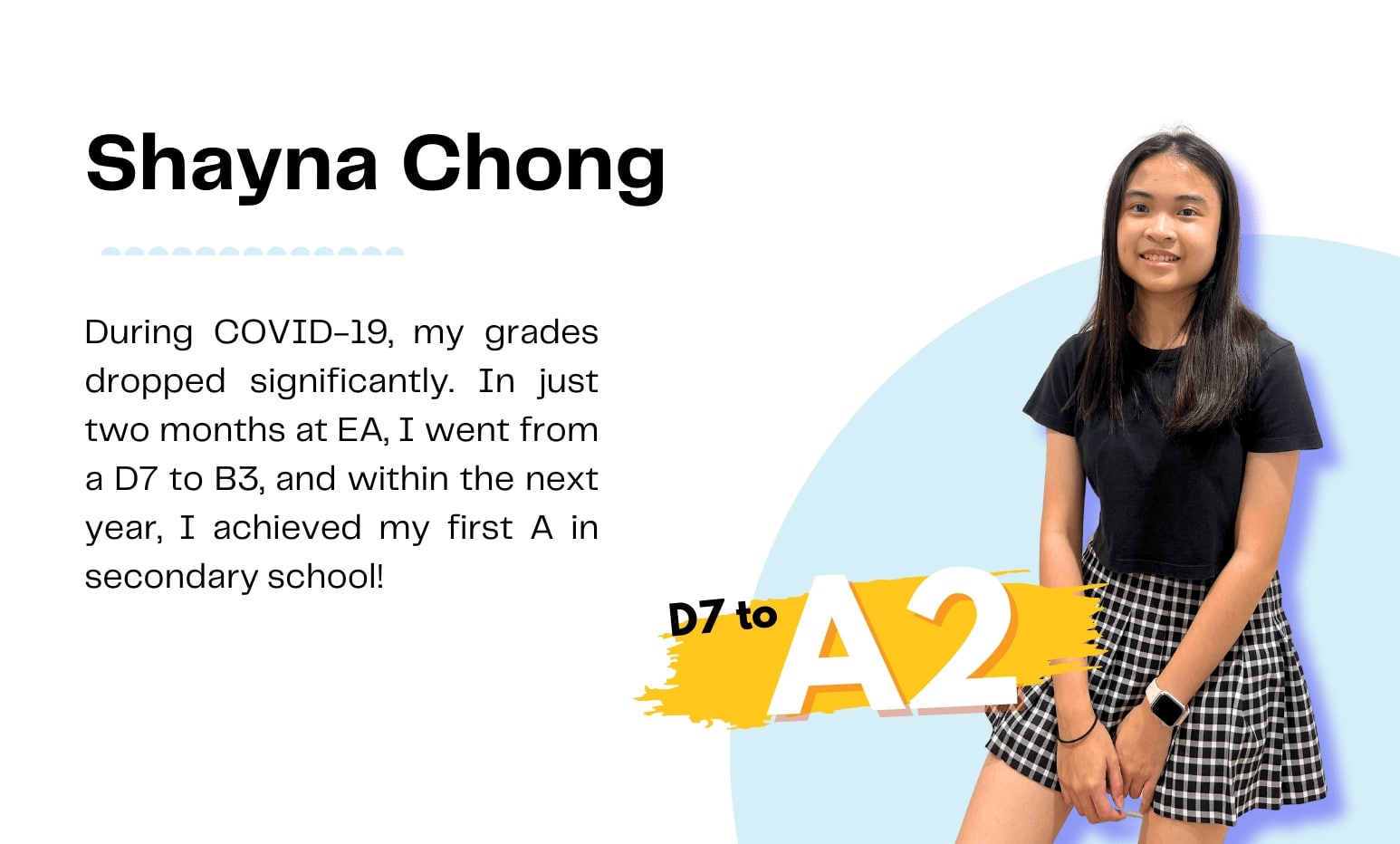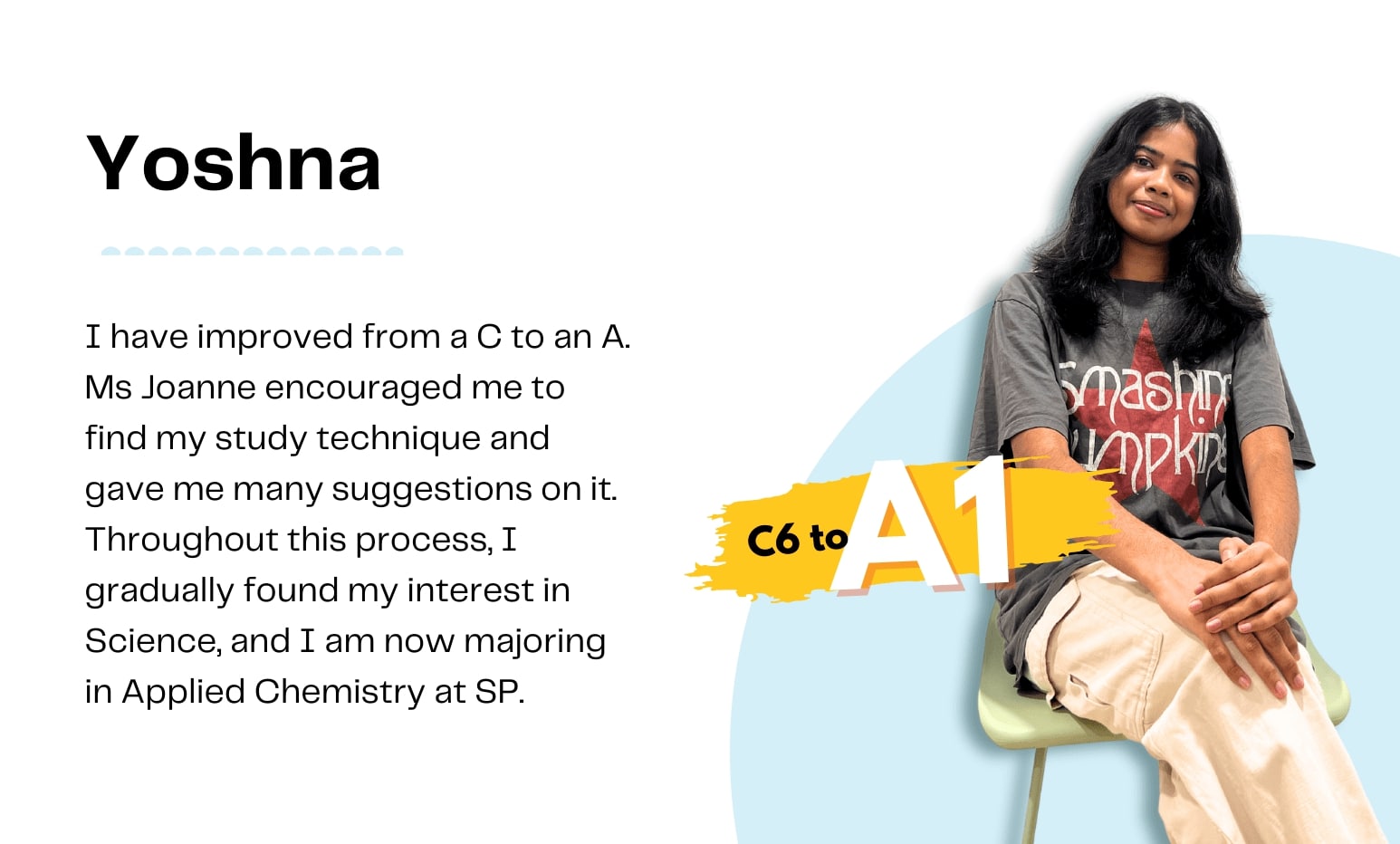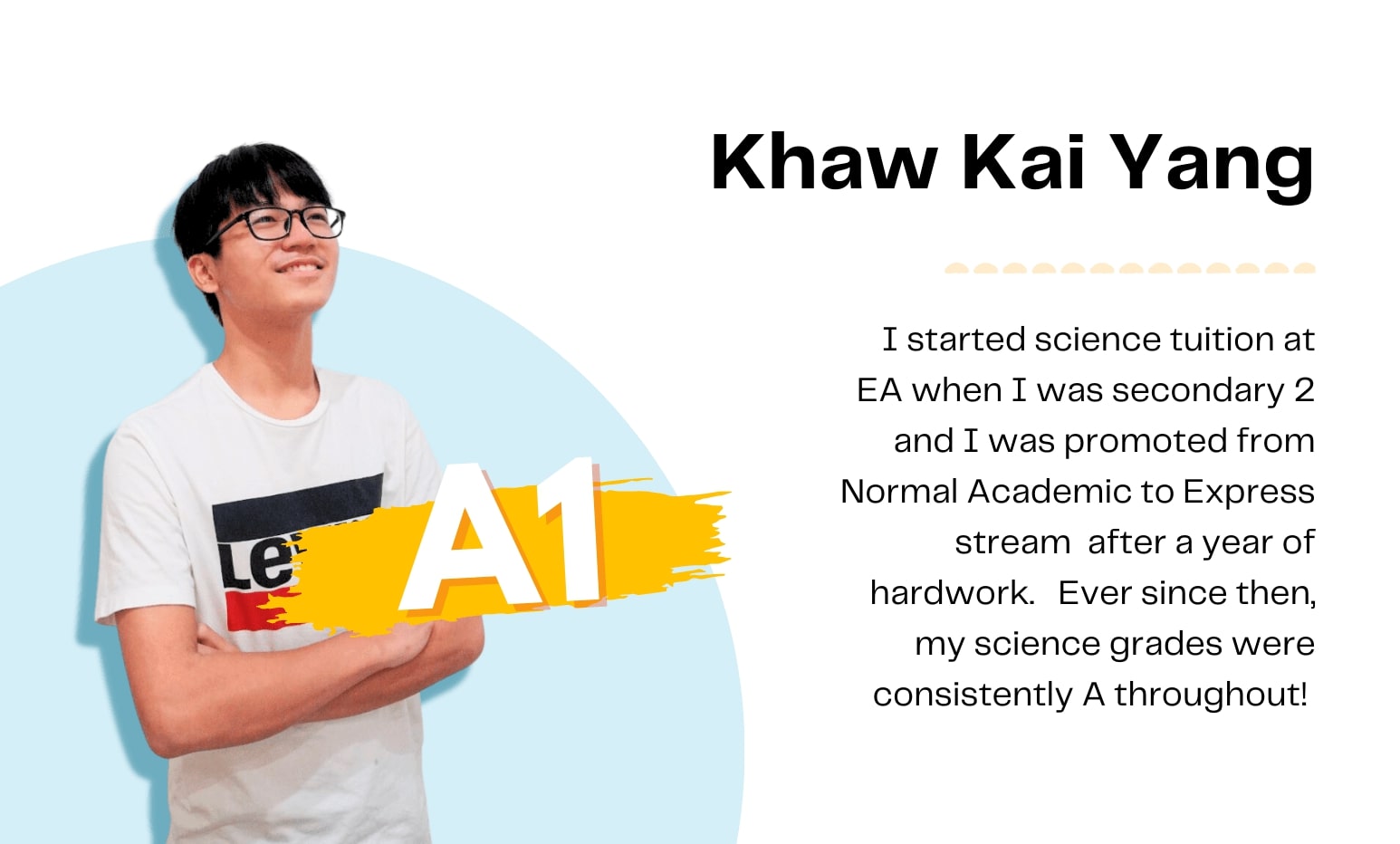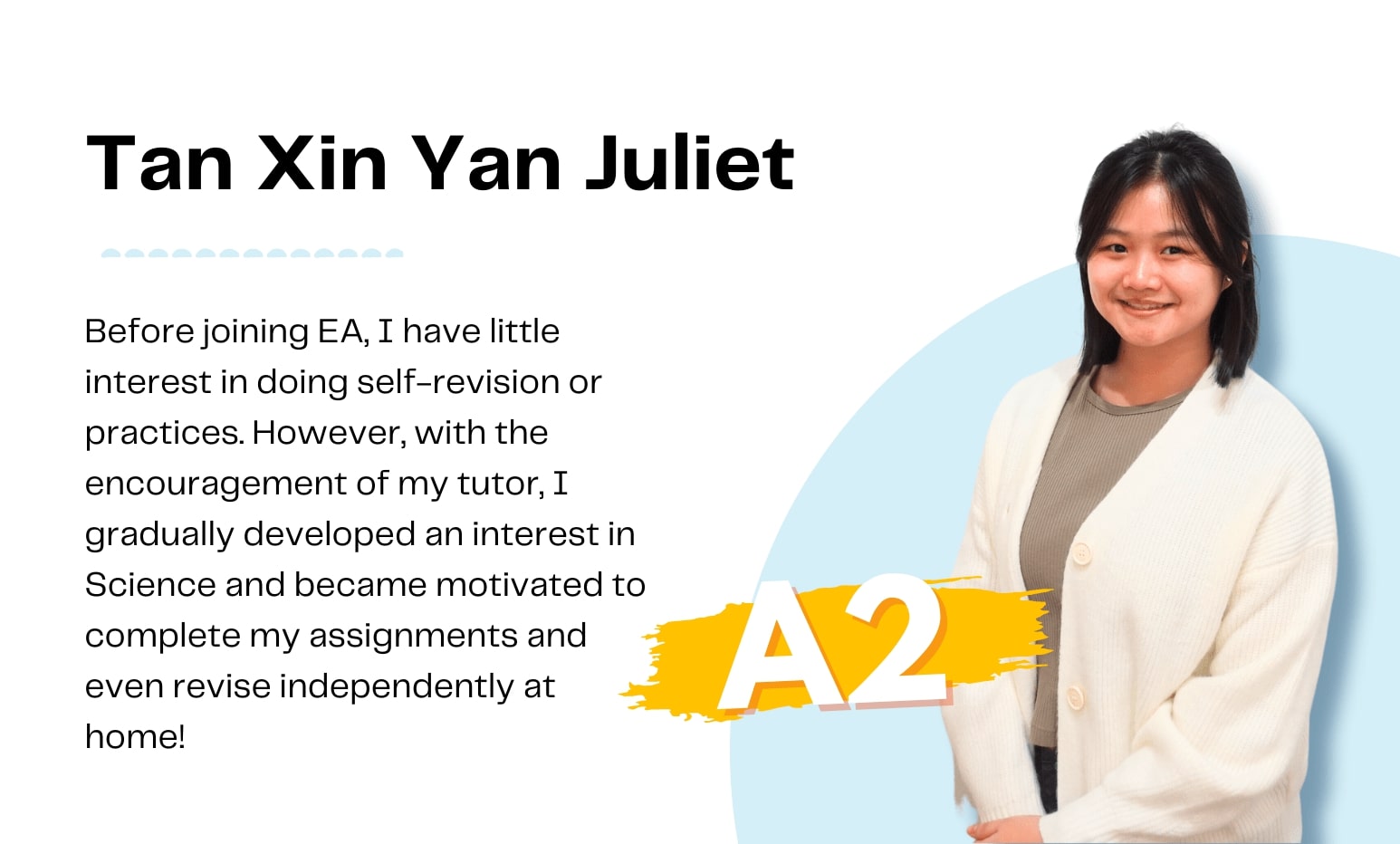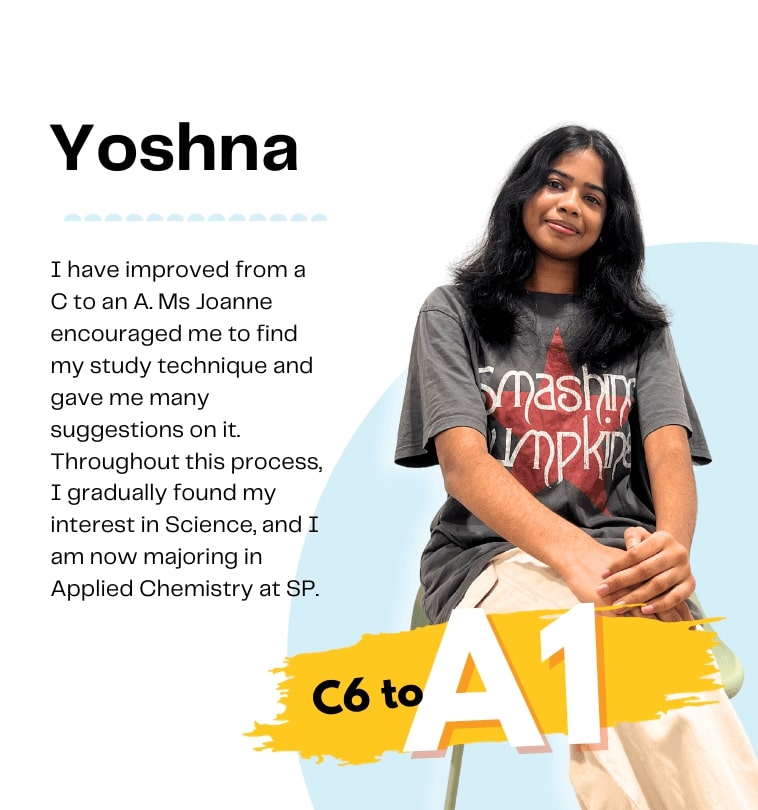Chemistry Syllabus
Secondary 3 Pure Chemistry
| Term 1 | Term 2 | Term 3 | Term 4 |
|---|---|---|---|
| Experimental Chemistry | Chemical Formulae & Equations | The Periodic Table | End-Of-Year Preparation |
| Kinetic Particle Theory | Mole Concept & Stoichiometry | Reactivity Series | |
| Atomic Structure | Acids and Bases | Redox Reaction | |
| Chemical Bonding | Salts | Ammonia | |
| Qualitative Analysis |
Secondary 4 Pure Chemistry
| Term 1 | Term 2 | Term 3 | Term 4 |
|---|---|---|---|
| Rate of Reaction | Organic Chemistry: Fuel and Crude Oil | Thematic Chemistry Revision | O Level Chemistry Preparation |
| Chemical Energetics | Organic Chemistry: Hydrocarbon | Prelim Preparation | Chemistry Application-based questions revision |
| Electrochemistry | Organic Chemistry: Alcohols, Carboxylic Acids and Esters | ||
| Polymers | |||
| Maintaining Air Quality |
![EA_Website_Notes_240326[1]_page-0002-min chemistry notes](https://www.exploreracademy.sg/wp-content/uploads/2024/02/EA_Website_Notes_2403261_page-0002-min.jpg)
- Deduce the cation (aluminium, ammonium, calcium, copper(II), iron(II), iron(III) and zinc) present in an aqueous solution through the formations of precipitates (if any) and their solubility in aqueous sodium hydroxide and/or aqueous ammonia.
- Describe tests to identify the following anions:
- Carbonate (by adding dilute acid and subsequent use of limewater)
- Chloride (by adding nitric acid and aqueous silver nitrate)
- Iodide (by adding nitric acid and aqueous silver nitrate)
- Sulfate (by adding nitric acid and aqueous barium nitrate)
- Nitrate (by reduction with aluminium in aqueous sodium hydroxide
to ammonia and subsequent use of damp red litmus paper) - Describe tests to identify the following gases:
- Ammonia (using damp red litmus paper)
- Carbon dioxide (using limewater)
- Chlorine (using damp litmus paper)
- Hydrogen (using a burning splint)
- Oxygen (using a glowing splint)
- Sulfur dioxide (using acidified potassium manganate (VII))
![EA_Website_Notes_240326[1]_page-0001-min chemistry notes1](https://www.exploreracademy.sg/wp-content/uploads/2024/02/EA_Website_Notes_2403261_page-0001-min.jpg)
- Describe and illustrate using ‘dot-and-cross’ diagrams, the formation of ionic bonds by electron loss/gain to achieve noble gas electronic configuration.
- Relate the ionic bond physical properties (melting point, electricity conductivity, solubility) of ionic compounds to their lattice structure and electrostatic attraction.
- Describe and illustrate using ‘dot-and-cross’ diagrams, the formation of covalent bonds by the sharing of electrons to achieve noble gas electronic configuration.
- Relate the covalent bond physical properties (melting point, electricity conductivity, solubility) of covalent compounds to their simple molecular structure and van deer waals force.
- Describe metallic bonding through the formation of a lattice of positive ions in a ‘sea of electrons’.
- Deduce the physical properties of metals as solid with high melting and boiling point, malleable, good conductors of heat and electricity from their structure and metallic bond.
- Compare the bonding and structures of macromolecules (diamond and graphite) and deduce their properties such as electrical conductivity, lubricating or cutting action.
Ready To Get Started?
Secondary 3 Pure Chemistry Class Schedule (2025)
| Class | Day | Time |
|---|---|---|
| Chemistry | Tuesday | 5:30 PM - 7:00 PM |
| Chemistry | Wednesday | 5:30 PM - 7:00 PM |
| Chemistry | Saturday | 11:15 AM - 12:45 PM |
| Chemistry | Sunday | 1:45 PM - 3:15 PM |
Secondary 4 Pure Chemistry Class Schedule (2025)
| Class | Day | Time |
|---|---|---|
| Chemistry | Wednesday | 5:30PM - 7:00PM |
| Chemistry | Saturday | 1:45PM - 3:15PM |
| Chemistry | Sunday | 11:00AM - 12:30PM |
Testimonials
What Our Students Say
Frequently Asked Questions
All lessons are physical classes as we conduct activity and experiments in class to give students a better understanding behind each scientific concepts.
A physical class also provides more personalised interaction between students and teacher allowing teacher to identify each student learning needs quickly and use the most appropriate approach to guide them.















